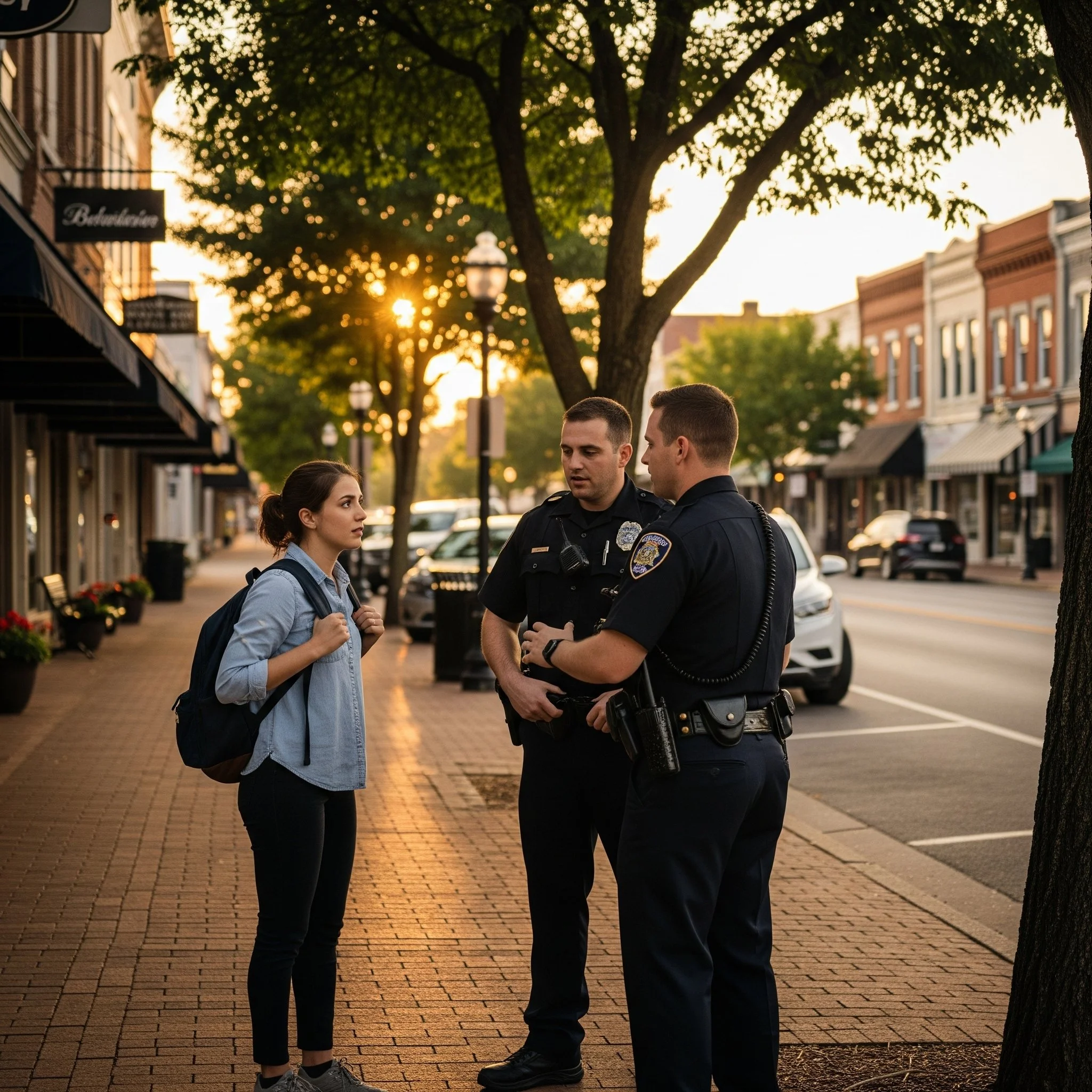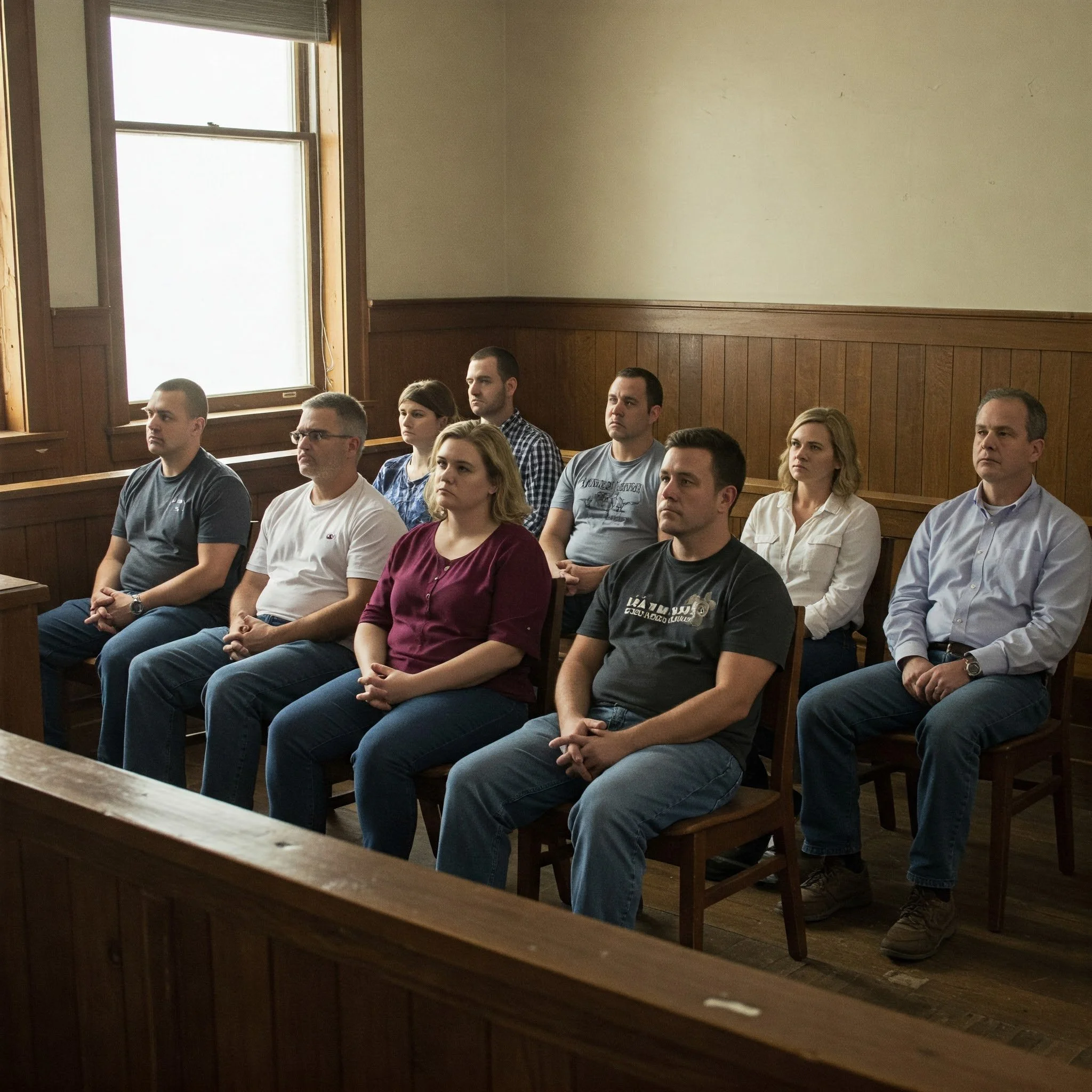What are the primary differences between robbery, burglary, and larceny? It comes down to whether the victim of the crime was present at the time of the burglary or the larceny. These terms are wrongly used interchangeably but are not the same crimes and have different legal consequences.
The Big Debate on Bail Bonds
We have seen recently how having too low a bond allowed defendants with long violent criminal records to get back out on the street, only to commit more crimes and in some cases the death of innocent people. Judges have a difficult decision in balancing the constitutional rights of a defendant, who is innocent until proven guilty,
Leverage in Criminal Cases
Legal News & Case Updates
Oklahoma Courts Step Into the 21st Century
Video Conferencing in the Courtroom
The Oklahoma Legislature has recently taken a big step, with a new statute that allows videoconferencing technology to be used in the Oklahoma District Courts for hearings up to, during, and after trial in both civil and criminal cases. Prior to this, it was unlawful for videoconferencing to be used in the District Courts of Oklahoma. There are several minimum requirements; here are a few:
Everyone who is directly involved, i.e. the attorneys, witnesses, judge, defendant, court reporter, and interpreter, can see and be seen and hear and be heard.
Participants shall be able to see, hear, and communicate with each other simultaneously;
Participants shall be able to see, hear, and otherwise observe any physical evidence or exhibit presented;
Video and sound quality shall be adequate to allow participants to observe demeanor and nonverbal communications and to clearly hear what is taking place to the same extent as if they were present in the courtroom;
The location from which the trial judge is presiding shall be accessible to the public to the same extent as the proceeding would be if not conducted by videoconference;
When feasible, a party and the party's attorney should be allowed to communicate privately off the record by use of a private communication facility (cellphone, landline, facsimile, Skype, etc.) during the proceeding, or during a break. The court is not required to provide a private communication facility if none is available.
There are also some exceptions; here they are:
Situations where its use might create undue prejudice;
When a person is available, but simply does not wish to be in the courtroom;
Convenience vs the Value of the Testimony;
Whether its use would interfere with the full ability to cross-examine a witness;
In a circumstance where the gravity of being in the actual courtroom will impress upon the witness the importance of telling the truth;
Whether a physical liberty or other fundamental interest is at stake in the proceeding;
Whether the judge is comfortable with his or her ability to effectively control what is happening at the remote location;
Whether a distortion in the technology causes those present in the courtroom to reflect negatively upon the person at the remote location;
Whether use of the videoconferencing technology will diminish the integrity and fairness of a proceeding in a particular instance;
Whether the person proposed to appear by videoconferencing presents a significant security risk to transport and present personally in the courtroom;
The necessity of waivers and stipulations between the parties regarding the use of videoconferencing during a proceeding;
And anything else that the judge might think is relevant.
The party that wishes to use videoconferencing technology for the purpose of witness testimony must submit a motion stating their intent at least thirty (30) days prior to the proceeding. Any party that objects to this must submit their objection in writing within ten (10) days of the filing of the original notice.
So, what are the advantages of using this new technology in the courtroom? The cost benefit is particularly relevant to those needing an interpreter or court reporter where none is available to be physically present, and the time, effort, and finances that would be required to get someone to be physically present would be restrictive. This is particularly true of poorly served and rural areas that lack the same resources as larger metropolitan areas.
However, there is no rule stating that courts must employ this new technology, and since the initial cost to install the equipment and training would presumably be substantial, it is likely that the areas that are poorly served now, will not be able to afford the equipment that is necessary to meet the requirements set out in the statute. Furthermore, the statute does not specify who is supposed to pay for the installation and maintenance of the equipment. Is it the County Treasury? Is it the State? Is it the Court Fund?
So, when would the videoconferencing technology be most valuable? Obviously, when used for expert witness testimony. The ability to bring in the testimony of a nationally, or even internationally, renowned expert without having to pay travel costs would be an enormous cost savings for either side of a litigation. As mentioned above, the ability to bring in an interpreter for unique and specific languages and dialects, would also provide witnesses and defendants the ability to understand and be understood. This is not just important, but a Constitutional right.
What about the risks? Clearly, it is difficult to tell when someone is lying. Most people find it difficult to tell when they are face to face with someone. Seeing and hearing them over a video screen will only make that more difficult. Considering that a big part of a jury’s job is to determine the credibility and reliability of each witness, this knew technology leap could get in the way of justice. The level of personal separation videoconferencing technology provides has the potential to reduce the impact and gravity of the proceedings, creating an insulation or barrier to the stress and impact of a tough and vigorous cross-examination, harming the truth-finding process of witness confrontation. Furthermore, there are no security measures in place that would ensure that the remote location remains pristine and free from influence or bias that could taint witness testimony. It is feasible that a person could stand out of view of the camera and coaches a witness without the court’s knowledge.
Technology has invaded every part of our lives. It has increased the quantity of communication, but not necessarily the quality. There are efficiencies that would be created for the court system, but for each benefit there comes a possible risk. So, what stands in the way of this technology leap? The greatest barrier to this technological leap may be the fact that it requires financial and procedural investment, and the legal world tends to resist investment and resists procedural change even more.
Author: Lauren N. Stanley
Domestic Violence - Flawed Bill
Rules of Evidence
The rules of evidence are very specific and have been hammered out at the Federal and State levels through years of experience in watching the results of criminal and civil cases. The intent of these rules are to provide for a fair and just outcome. One of the Oklahoma rules, Title 12 O.S. § 2404(A)(1), is to prevent what might be perceived by a jury as a bad character trait, or a previous crime, from being used by the prosecution to prejudice the jury’s opinion of the defendant, instead of letting the facts speak for themselves. There is an exception built right into this rule (Title 12 O.S. § 2404(B)), which says it may, however, be admissible for other purposes, such as proof of motive, opportunity, intent, preparation, plan, knowledge, identity or absence of mistake or accident. This is a well thought out and well written statute.
Weakening the Rules of Evidence
In an attempt to once again weaken the rules of evidence and to fix something that is not broken, the Oklahoma State legislature has proposed a legislative bill (HOUSE BILL 1093) that will bypass the above rule in cases of domestic abuse. At first blush, you might say that maybe domestic abuse cases may need some special consideration. However, this poses a very real to the rights of the accused. This increases the risk of sending an innocent person to prison based on perception instead of facts. §2404(B), along with several other exceptions, provide the prosecution ample opportunity to enter this type of evidence to show a pattern of behavior. Furthermore, if a jury was to find a defendant guilty of the crime, then the defendant would be looking at a much stiffer punishment for having previously committed the crime of domestic abuse. This proposed new law does not offer greater opportunity for the truth to come out, but instead plays into the mudslinging insanity that has irreparably damaged innocent lives of late.
Especially Faulty Language in House Bill 1093
Beside the fact that this law is redundant and more effectively handled by the current statutes, it adds dangerous language that opens the door to broad interpretation and possible misuse.
Here is what I mean, look at the words highlighted below from § D of the proposed bill:
D. For purposes of this rule, "domestic violence or abuse" means any incident of controlling, coercive or threatening behavior, violence or other act of abuse against a person in a relationship as specified in subsection C of Section 644 of Title 21 of the Oklahoma Statutes. The violence or abuse may be psychological, physical, sexual, economic or emotional.
The current statutes defining Domestic Assault and Battery couldn’t be clearer. Look for yourself, I have attached them to the bottom of this post.. This bills new definition of domestic violence or abuse would bring in an unrealistic number of normal domestic issues into the fold of what would be considered as domestic abuse. Remember that this applies to the following people: spouse, significant other, former person you lived with, or blood relative. You can no longer threaten those people in any way. No limiting sweets, sex, or spending money without a risk of that relationship being brought before a jury to be judged. You can’t even threaten such limitations.
Conclusion
Who among us is flawless? Who among us has had perfect relationships? When accused, should the prosecutor be able to spread before a jury all of your dirty laundry, or only that which is pertinent to the case at hand? This bill is redundant and flows from the same river that drowns our airwaves with fear mongering, innuendo, and unsubstantiated claims. Haven’t we learned from history? We have more than enough laws and rules of evidence (see below). Let’s focus our legislative energy on improving education and broadening our economic base for a stronger Oklahoma.
The Law
Title 21 O.S. 644(C)
Any person who commits any assault and battery against a current or former spouse, a present spouse of a former spouse, a former spouse of a present spouse, parents, a foster parent, a child, a person otherwise related by blood or marriage, a person with whom the defendant is or was in a dating relationship as defined by Section 60.1 of Title 22 of the Oklahoma Statutes, an individual with whom the defendant has had a child, a person who formerly lived in the same household as the defendant, or a person living in the same household as the defendant shall be guilty of domestic abuse.
Title 21 O.S § 641. Definition of Assault.
An assault is any willful and unlawful attempt or offer with force or violence to do a corporal hurt to another.
Title 21 O.S § 642. Definition of Battery.
A battery is any willful and unlawful use of force or violence upon the person of another.





